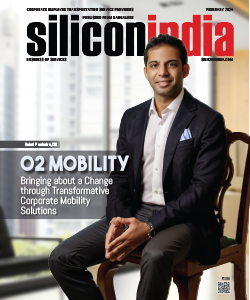HP Delivers Industry's Only Complete Unified BYOD Networking Solution
![]() Bangalore: HP announced new unified wired and wireless solutions that deliver a simple, scalable and secure network supporting bring-your-own-device (BYOD) initiatives while creating incremental revenue opportunities for partners.
Bangalore: HP announced new unified wired and wireless solutions that deliver a simple, scalable and secure network supporting bring-your-own-device (BYOD) initiatives while creating incremental revenue opportunities for partners.
The new solutions and services, introduced at the HP Global Partner Conference, include the industry’s only complete solution that supports growing BYOD initiatives. This solution delivers unified wired and wireless management and switching platforms that create a single network for wired and wireless connectivity.
The offerings also enable partners to leverage the HP FlexNetwork architecture to better support their clients’ BYOD essentials with new device on-boarding and provisioning functionalities through a single management application and automated security with software-defined networks (SDN) technology, while being supported by mobility connectivity services.
By 2016, two-thirds of the workforce will own smartphones, and 40 percent of the workforce will be mobile. Yet, today’s legacy infrastructure requires two separate networks and management applications for wired and wireless connectivity, resulting in operational complexity. Additionally, these legacy infrastructures lack scalability to support multiple devices per user or the security to protect mission-critical information.
According to Gartner, every business needs a clearly articulated position on BYOD, and formal BYOD programs are a fast-growing phenomenon due to the booming, innovative mobile device market.
“Organizations are struggling to deploy BYOD solutions within a complex, legacy infrastructure that spans two separate networks and management applications,” said Prakash Krishnamoorthy, country manager, HP Networking, HP India. “HP’s complete unified BYOD solution is the first to solve this issue and—combined with HP’s comprehensive training, programs and services—will create new, profitable opportunities for partners.”
According to Gartner, cloud scalability for mobile applications will be essential as these applications have the largest number of concurrent users. Legacy infrastructures cannot offer the scalability needed to deliver unified access from the data center to the branch network.
As users continue to bring their own devices to work, they create greater exposure to external data and application vulnerabilities that require automated network security for device on-boarding.
Also Read: Saket Modi, The 22 Yr Old Who Saves Govt Agencies From Deadly Hackers
Also Read: 10 Safest Internet Browsers For Enterprises



